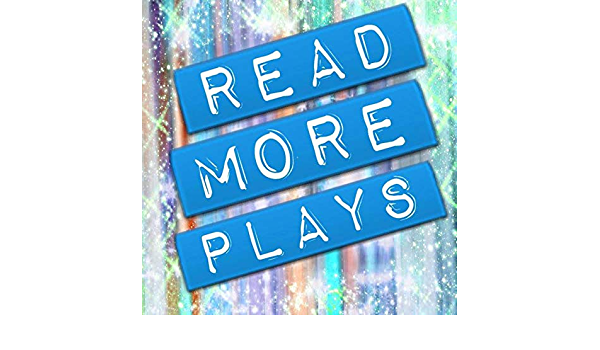Is Acting A Talent Or A Skill? | How to Develop your Acting Skills
- 13 Dec 2021
- Tips
Acting is a skill. Like most skills, it is aided by natural talent, but it is not enough. So how do you hone your acting skills and become the confident, charming actor you dream of? By the end of this article, you will have some techniques to help you hone your acting skills, no matter where you are in your career. None of the tasks mentioned in this article need to spend a lot of money, but it does require dedicated and focused effort.
For those of you who think you can't work on your acting every day, just like that. I am going to cover all the major areas of acting work including voice, movement, cognition, text work, and acting.
Sound

Your voice is one of the few solid assets you have as an actor. It is your resonance, breathing support, expression, and expression. Work on it like you would on any device! If you want to be able to deal with the language of Shakespeare or the emotional demands of Arthur Miller, you need a voice that is strong, flexible, and connected. Voice work is the most neglected area of acting training by young actors, but I am hoping to change that attitude today. That's why voice work is number one on this list!
1 Why Is Voice Important?

You want your voice to be flexible enough to embody any character that comes your way. Can you play a mighty high-class character? Can you play someone with a strong accent? Can you play a character who speaks twice as fast as you? The voice is the key to the different ways in which the characters open up to the world and bring them to life for the audience. Using your natural voice may come in handy for a while, but eventually, you'll need to diversify your vocal talents to book more jobs and more different roles.
2 Voice Warm-Up

Voice warm-ups come in all shapes and sizes. The key is to find one that works for you. It is always best to warm up based on the advice of a professional voice coach or voice class you have taken. The key to voicing the warm-up is that consistency trumps effort. Doing 5-10 minutes a day is better than 1 hour-long session each week. I recommend doing something every morning (maybe give yourself a Sunday off) if you want to develop your acting skills.
3 Expression Exerci ses

Expression is a skill that is often neglected, and yet it is incredibly rewarding to work with on a daily basis. Include 5 minutes of articulation exercises every day in your vocal warm-up. Take the time to work on particular sounds you struggle with, and always work with one piece of text. Be it Shakespeare, Brecht, or Kenneth Lonergan - choose something that inspires you.
Idea:

Get some help! I have a great vocal warm-up that I listen to on Spotify. Every morning I turn it on and do it for only 3 minutes. Having someone talk to me helps hold me accountable. It's good fun and seriously annoys my housemates.
4 Work On The Text

We'll talk a little more about text work later, but remember that you're working on voice to improve the way you work on the text. So say some great lessons out loud every day. Ideally, this could be a great poem or a piece of dramatic text like a monologue. I believe that regularly reading aloud amazing writing every day is one of the most enriching things you can do as an actor.
Speed

Like Voice, you don't want your own habits and stress to hinder you from developing unique and subtle characters. If you can physically work from an aligned, grounded, and comfortable starting point, you can easily spot a laid-back surfer from LA alongside the likes of Richard the Third.
1 Why Is Movement Important?

Movement is one of those areas of acting that you can work on every day and see noticeable improvement very quickly. It is work that will allow you to become a more relaxed and expressive actor. I cannot stress enough how important movement work is to actors. Freeing the body also frees the mind and the fewer limitations you have physically, the more open you are to opportunities, ideas, and direction.
2 Movement Exercise

Physical exercise doesn't always mean working out in the gym (although it is a really important part of an actor's health and fitness). Your daily movement practice can come in the form of yoga, Alexander, Feldenkrais, or even tai chi. Like voice work, 5-10 minutes a day consistently is far more powerful than an hour a week. Again, it's a good idea to work with a movement coach to get you on the right track.
3 Semi-Supine

If you still haven't found a movement exercise that works for you, I'd take a look at doing 10-20 minutes a day in semi-supine. Basically, this is an incredible situation to recover from the day. It helps with alignment, breath, and that's the best! One
Knowledge

There are many great actors who probably don't recommend Stagemilk which recommends 8 plays a week. But all great actors have a knowledge of the craft, and an undeniable eagerness to expand on that knowledge. They are aware of the industry and the stories they tell. I believe the more you read, watch, and engage with the world of acting, the better you become. It's important to expand your mind and challenge yourself.
1 Read More Plays

Reading plays is an invaluable habit. Yes, it can often feel like a chore, but it is one that will improve your acting skills. The more you read, the more you get to know different authors, characters, devices and become more proficient in genre, style and language.
2 Watch More Theater, Movies And Great TV

When was the last time you saw the play? I bet it was a while ago, or else your friend forced you to watch his latest one man show about moving to LA to become an actor... if you want to be an actor and you want great drama If you're not watching movies and TV, then you need to start (immediately!) You can't expect to break away from an industry you're not even involved in. Go ahead and challenge yourself. Some of what you see will be terrifying, but you'll probably find that you learn more from the bad things than from the good things.
3 Read Acting Books !!!

The first two suggestions are very simple. Reading a great play, or watching a TV show - this is the best homework you can ever do. However, reading an acting book can be daunting. They can actually be cerebral and are often quite dry. However, having a solid understanding of the main ways of acting is so powerful - so just do it. Check out some of the best acting books of all time.
Basic lesson
This is how you bring a lesson to life. It's all about your voice work, but also specifically about your unique interpretation of text and your ability to bring it to life. Finding range and detail with dialogue is one acting skill that can set you apart from all other actors. This is especially important when working on Shakespeare and other great classics. How dynamic and colorful can you give a monologue or scene?
1 Learn a Monologue

Actors often think that they cannot work on their acting alone. The fact is that we can work on individual skills of acting everyday, and we can do it alone if we have to. Want to get better at acting Chekhov? Learn and work on 2 Chekhov monologues this week. Get to know them, prepare and then get anyone to see your work. It's hard to motivate yourself to do this kind of work, but stretching yourself will do.
2ReadAloud

Hopefully you will start reading more after this article: Drama, Novel, Short Stories, Poetry. Then the next step is to read aloud. If you can read aloud, voice over, you'll become more confident with text. (And not to mention that your cold reading audition skills will go through the roof). I try to read something aloud every morning. I currently have a copy of Hamlet next to my bed and I wake up and read a monologue or scene. This is great for your acting skills, but also affirms for your career. You are telling the day that you are an actor, and acting is your first priority!
Acting

Finally we come to acting. (supposedly) the most intangible of all acting skills. There is no other way than to refine your acting technique. Working on scenes and monologues, doing drama, film and TV. But we don't always have the opportunity to do these things at the level we want to. However, there are some basic things you can work on on a regular basis that help with relationship building, presence, storytelling, and listening.
1 How to Be a Better Actor…(Work!)

Working on your craft is how you get better. He can be in a class or on a production. The key is to always keep learning. Aiming for perfection doesn't work. You will never be perfect! (Terrible I know). Like any artistic pursuit, becoming a better actor is about becoming more open, honest and vulnerable. So get out there and do some work. It does not have to be paid, professional work. Work on a scene with a friend or join the Stagemilk Drama Club and work with our amazing community. But try to take the script as often as possible!
Ideas:
Find 2-5 acting partners you know who are passionate. Plan to get together once a week and write new scenes or monologues. If you can do this regularly and help hold each other accountable then your work is about to skyrocket!
2 How To Act (A Process)

Having a process is important. Sometimes you'll see a script and it's absolutely overwhelming. You have no clue where to start, how to delve into the character and so you can't make any progress. That's where having your own process will help. It will be refined over the years, and you can continue to update it as you go. It may change and evolve on each production you work with, but it is a structure and it is a starting point at which you can keep coming back. I recommend getting a binder folder and organizing your notes from class, printed articles from Stagemilk or other sites (which will not necessarily be as good) - keep checking this folder again, for that. Use it to develop your process and structure. Next time you approach for a new role.
You can continuously explore and refine your process. Maybe try working on a few pieces where you just learn the lines, and then look at another where you do Ivana Chubbuck's full 12 moves and see what sounds good. Your process is so important as an actor.
3 Work On You!

There are many acting teachers out there, from Stella Adler to Anthony Meindel, who talk about improving your acting skills by improvising you. One of the best ways to improve as an actor is to work on you. Start living life people! We are actors who have to narrate the deepest stories and embody the loudest characters. How can you do that if you life 9-5 working in a mundane job and watching TV and going to the pub once a week. Explore, travel, take risks and be bold in life to be bold on stage.
Where To Practice Your Acting Skills
.jpg)
Throughout this article I've outlined some techniques and ideas for developing your acting skills in all major areas of the craft. But it's important to get out into the world and put them into practice. So here are some solid ways to develop your acting skills:
Weekly Class
Taking yourself to an acting class every week is about maintaining consistency, learning new things and giving you the chance to watch a few hours of acting 'practice'. (10,000 hours is the key to mastering anything, so you better start out!)
Learning On The Job

Every gig you get is a chance to work on your acting skills. It's great to have a goal on every project you work on. For example: During this short film, I'm really going to focus on listening to my fellow cast members. All great actors have said that they often learn more at work than in drama school. Real-world experience is priceless, and I won't pass it up.
Working With Friends

I mentioned this before, but it's worth repeating here. If the classes are too expensive, and you haven't got any work in the pipeline, get together with some friends and work on the script. It can be a movie script, or a theater script. Encourage and be kind to each other, but also provide some critical feedback. Your friends know you best, and you'll actually have some amazing insight into how to improve your work. You will learn by watching your teammates work as well. Rally the troops, and have some fun.
Larry Moss On Developing His Acting Skills
Here's an excerpt from an interview I had with Larry Moss a few years ago. He gives some great ideas to develop your acting skills.
Join Model Factory To Access Jobs You Can Apply To Right Now...






